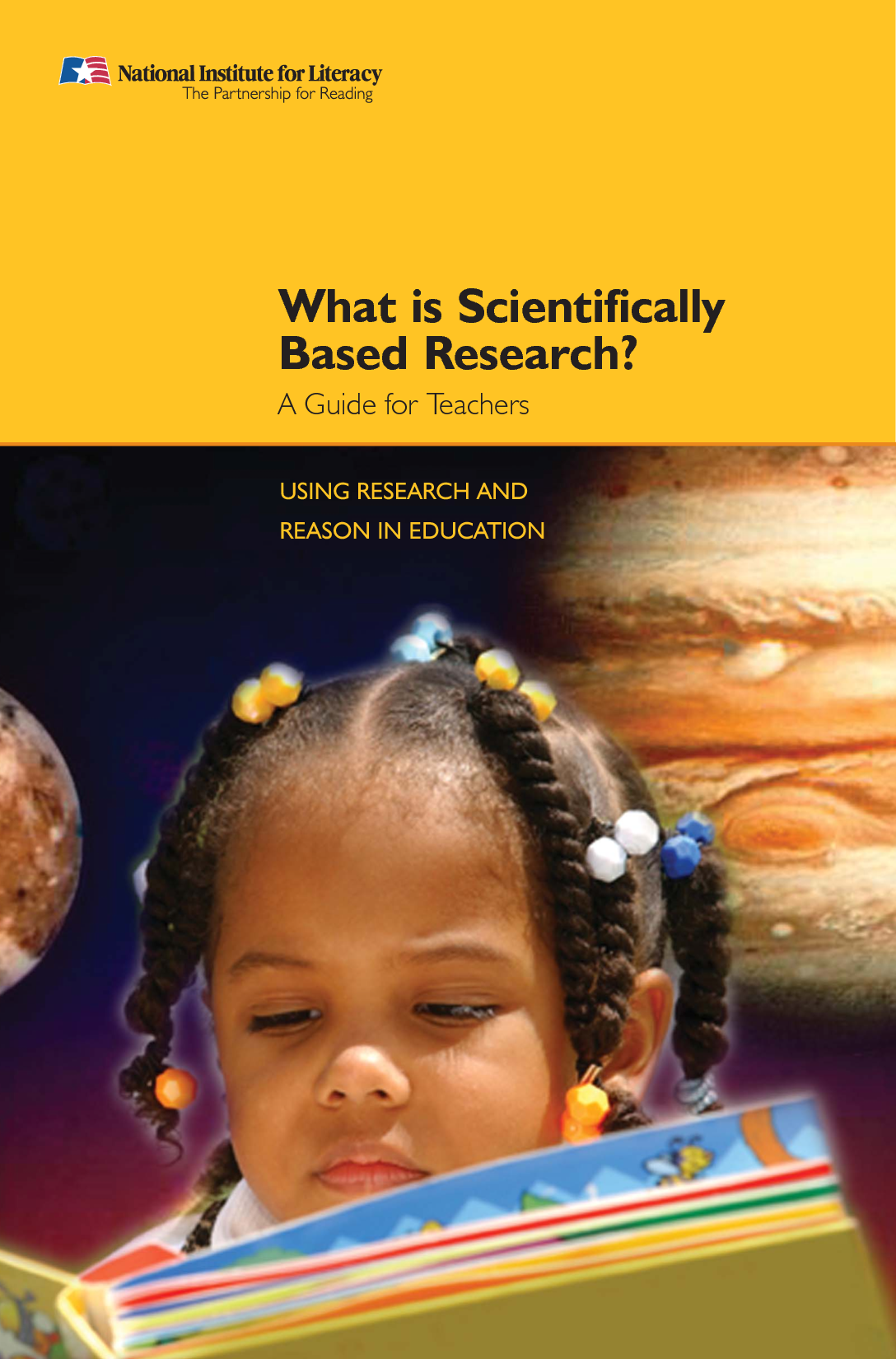
Becoming more aware of how the scientific process manifests itself every day in both research and teaching can enhance a teacher’s effectiveness, depth of expertise, and ability to justify the choice of instructional methods to parents, peers, and administrators. As in formal evaluations of educational programs, the tenets and themes of scientific research have relevance and application in the classroom. But because there are different stages of scientific investigation, teachers should take care to use data generated at each stage in appropriate ways.
For example, some teachers rely on their own observations to make judgments about the success of educational strategies. A collection of observations leads to some understanding of the world, but observations have limited value. Scientific observations must be structured in order to support or reject theories about the causes that underlie events. Scientists—and teachers—make predictions about causes based on their structured observations and then use other techniques to test specific outcomes.
In the early stages of investigation, case studies—highly detailed descriptions of individuals or small groups and the context surrounding them—can be useful. Case studies provide descriptive information about how an educational program operates in a classroom, for example, descriptions of instructional strategies, amount of time, and types of materials used in a new vocabulary program. This qualitative design uses a variety of data collection methods from multiple sources to study a single entity in depth, over a period of time, and in its context. Case studies lack the comparative information needed to determine cause-effect relationships, but they can point researchers to variables that deserve further study and help generate hypotheses. They can be helpful in developing theories about what is or is not working instructionally. However, case studies cannot provide the measurable results that are necessary to understand and confirm outcomes.
Correlational studies take things a step further by testing whether there are links between variables and outcomes. They are useful in early and middle stages of an investigation once hypotheses have been developed. For example, if a researcher hypothesizes that vocabulary instruction leads to improved reading comprehension, he or she could conduct a correlational study, using statistical techniques, to determine if there is a link between vocabulary instruction and reading comprehension. If the study finds a link, the researcher could design a randomized controlled trial, or true experiment, to confirm whether the vocabulary instruction causes the improvement in comprehension.
In order to draw conclusions about outcomes and their causes, data must come from true experiments. True experiments, or randomized field or controlled trials, test specific predictions and rule out alternative explanations. In an experiment, an investigator assigns subjects randomly to experimental and control groups, varies the apparent cause (the independent variable) and looks at the apparent effect (the dependent variable) while holding all other variables constant. Only true experiments can provide evidence of whether an instructional practice works or not. The experimental method controls for the many other variables that could have an impact on an outcome. Unlike case studies and correlational methods, experiments use techniques such as random assignment of subjects to treatment and control conditions and the matching of subjects in the treatment groups on background and ability variables.
The experimental method controls for the many other variables that could have an impact on an outcome. Unlike case studies and correlational methods, experiments use techniques such as random assignment of subjects to treatment and control conditions and the matching of subjects in the treatment groups on background and ability variables. …
While teachers certainly would not be expected to carry out true experimental research in the classroom, understanding the role of experimental research as well as the other stages of scientific investigation and the data they generate—from observations to standardized assessments—can prepare teachers to interpret research better, decide what and how to teach, and make legitimate, defendable statements about the impact of their instructional choices.
National Institute for Literacy. 2006. What is Scientifically Based Research: Using Research and Reason in Education. Washington DC: National Institute for Literacy.
